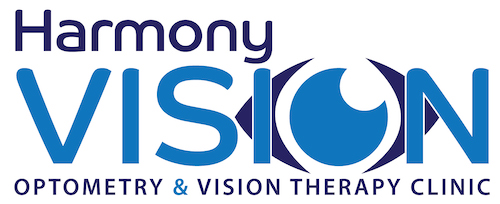Convergence Insufficiency
Convergence insufficiency is a common but often overlooked vision problem that is estimated to affect between 5-10% of the population. It has been linked with “ADD-like” behaviours in children due to the person’s inability to sustain two-eyed alignment and focus during near visual tasks such as reading and writing.
In order, to see clearly at close distances and without confusion, the two eyes must be aimed precisely at the object you are trying to see. Unfortunately not everyone develops or maintains this ability through childhood. Inaccuracy of the alignment of the eyes can result in visual fatigue, blurred or double vision, poor judgment of depth, eye ache, headache and mental fatigue.
What Causes it? Is it Genetic?
Convergence Insufficiency appears to get worse in some children as they get older—one theory is that eye strain and fatigue results in the brain responding by making convergence painful and thereby restricting the convergent eye movement. In time, this restriction becomes a habit, the pain goes away but the habit remains. Some other children do not appear to learn how to converge properly to begin with. Anecdotally, this also appears to run in some families.
Can this Affect Learning?
How the brain and eyes work together – vision – has a great impact on the learning process for both children and adults. Imagine sitting in a classroom taking notes and fighting a vision problem that won’t allow you to change your focus from near to far and back again quickly enough to keep up with the teacher. Imagine reading a paragraph and having the letters or words appear to move and jump as you are trying to comprehend what you are reading.
In any of these cases, the person with a convergence problem, more than likely sees “20/20” either with or without corrective lenses. Most school screenings check for good sight alone and do not screen for visual skills including tracking, focusing, eye teaming or perceptual skills. Many children and adults do not realise that their struggles in the classroom and/or workplace are in no way linked to intelligence or how hard they are trying, instead they are not able to visually process the information put before them. We have even seen this lead to the mis-diagnosis of dyslexia and ADHD.
Can This Problem Affect Adults?
Not knowing the cause of classroom (and later adult life skills problems), can have a detrimental effect on self-esteem and behaviour. Many children begin to be labelled as classroom problems, can grow into struggling adults if their visual problems are not diagnosed and treated.
Some adults find it also affects balance and depth perception.
So What Can Be Done?
Finding the correct diagnosis requires asking the right questions and doing the right tests. The symptoms of convergence insufficiency aren’t always obvious, and specific types of tests are required to find the problem. Our optometrists have extensively studied the effects of stress on vision, and the impact that poor vision has on learning, reduced concentration and performance. With proper diagnosis, treatments are available.
Glasses
Most of the symptoms in early Convergence Insufficiency have been linked to focusing problems —mostly known as Accommodation Insufficiency. If caught in the early stages, many people simply need some mild ergonomic reading lenses to reduce eye-strain before convergence becomes painful. We’ve seen no evidence that they make your eyes weak.
Office Based Vision Therapy
Some people will need to actively retrain the teaming between the two eyes and the brain.
In the past, the training has been over-simplified as basic pencil or finger “push-up” exercises. Well marketed computer programs promise an effective “cure” but have been proven to only be 40% effective in treating convergence insufficiency.
Instead, the most effective treatment is Office Based Vision Therapy. This is a series of activities delivered weekly by a trained vision therapist or optometrist, combined with a daily home program.
To arrange an appointment or to find out more about Convergence Insufficiency, please call our team on 07 5520 5900.
